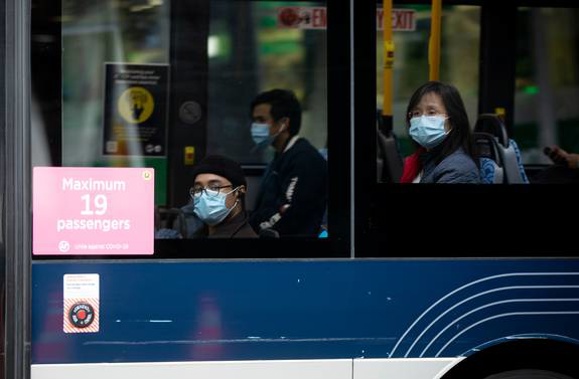
There are 3693 new Covid cases reorted today - and 35 Covid-related deaths, including four people in the 60s.
Ten people were in their 70s, 13 were in their 80s and eight were aged over 90.
Less people are dying from Covid-19 each week after a peak in July amid the latest Omicron outbreak, data shows.
The latest Ministry of Health data showed 77 people were reported to have died from the virus for the week ending August 14. This is compared to 105 for the week prior.
In the week ending July 31, that number peaked at 142.
Covid modelling expert Michael Plank said the daily Covid deaths being reported were averaging at about 10 and he hoped that number would drop to single digits within the next month.
"Deaths are starting to come down now. Obviously, cases have been coming down for sometime, deaths do lag behind so they would have peaked after cases did but it looks like they are starting to come down now," Plank said.
The figures come ahead of the Ministry of Health releasing its latest Covid-19 figures shortly after 1pm today.
Yesterday there were nine Covid deaths reported, four were from Auckland region, two were from Waikato, one was from Canterbury and two were from Southern.
One was in their 50s, three were in their 60s, two were in their 70s, two were in their 80s and one was aged over 90.
Five were women and four were men.
There is now a total of 1824 deaths confirmed as attributable to Covid-19 (either as the underlying cause of death or as a contributing factor).
The number of people fighting the virus in hospital continued to drop with the weekly average sitting at 472 yesterday, compared to 570 the previous Monday.
There are 432 cases in hospital, including 9 in intensive care.
Community numbers were also the lowest seen since the beginning of the country's first Omicron wave in February.
Yesterday, there were 2706 new people infected. The seven-day rolling average of cases continued to decline - yesterday it was 3655 while the Monday prior, it was 4230.
Dr Dion O'Neale, of Covid-19 Modelling Aotearoa, also said our community case numbers – the lowest seen since the beginning of the country's first Omicron wave in February – needed to be viewed in the context of under-reporting.
O'Neale said a daily case number below 5000 was "on the lower side of what we'd expect" currently.
The true number of infections in our community would almost certainly be higher – the figures reported by the Ministry of Health perhaps represent 40 to 65 per cent of cases – and under-reporting appeared a to be clear factor in some days' particularly low case counts.
"But, after experiencing these two peaks, we've also decreased the size of our susceptible population by quite a bit – and there's now fewer people remaining to be infected."
Take your Radio, Podcasts and Music with you









